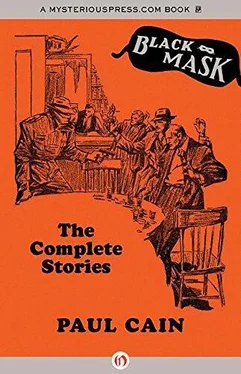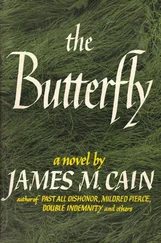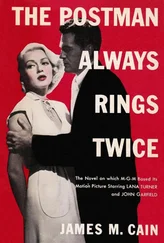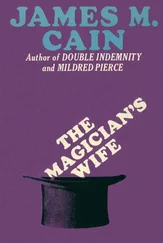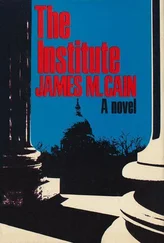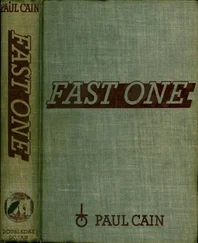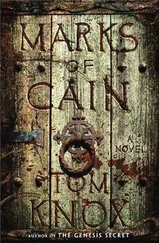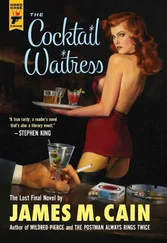Doolin’s expression was stubborn, annoyed. He turned and strode across the living room, squirmed into his coat, put on his hat and jerked it down over his eyes.
She stood in the doorway. Her face was very white and her eyes were wide, round.
She said: “Please. Johnny...”
He didn’t look at her. He went to the desk against one wall and opened a drawer, took a nickel-plated revolver out of the drawer and dropped it into his coat pocket.
She said: “If you do this insane thing — I’m leaving.” Her voice was cold, brittle.
Doolin went to the outer door, went out, slammed the door.
She stood there a little while looking at the door.
Angelo Martinelli stuck two fingers of his left hand into the little jar, took them out pale, green, sticky with Smoothcomb Hair Dressing. He dabbed it on his head, held his hands stiff with the fingers bent backwards and rubbed it vigorously into his hair. Then he wiped his hands and picked up a comb, bent towards the mirror.
Martinelli was very young — perhaps twenty-four or — five. His face was pale, unlined; pallor shading to blue towards his long angular jaw; his eyes red-brown, his nose straight and delicately cut. He was of medium height but the high padded shoulders of his coat made him appear taller.
The room was small, garishly furnished. A low bed and two or three chairs in the worst modern manner were made a little more objectionable by orange and pink batik throws; there was an elaborately wrought iron floor lamp, its shade made of whiskey labels pasted on imitation parchment.
Martinelli finished combing his hair, spoke over his shoulder to a woman who lounged across the foot of the bed:
“Tonight does it...”
Lola Sare said: “Tonight does it — if you’re careful...”
Martinelli glanced at his wristwatch. “I better get going — it’s nearly eight. He said he’d be there at eight.”
Lola Sare leaned forward and dropped her cigarette into a halffull glass on the floor.
“I’ll be home from about eight-thirty on,” she said. “Call as soon as you can.”
Martinelli nodded. He put on a lightweight black felt hat, tilted it to the required angle in front of the mirror. He helped her into her coat, and then he put his arms around her, kissed her mouth lingeringly.
She clung to him, whispered: “Make it as fast as you can, darling.”
They went to the door and Martinelli snapped off the light and they went out.
Martinelli said: “Turn right at the next corner.”
The cab driver nodded; they turned off North Broadway into a dimly lighted street, went several blocks over bad pavement.
Martinelli pounded on the glass, said: “Okay.”
The cab slid to an abrupt stop and Martinelli got out and paid the driver, stood at the curb until the cab had turned around in the narrow street, disappeared.
He went to a door above which one pale electric globe glittered, felt in the darkness for the button, pressed it. The door clicked open; Martinelli went in and slammed it shut behind him.
There were a half dozen or so men strung out along the bar in the long dim room. A few more sat at tables against the wall.
Martinelli walked to the far end of the bar, leaned across it to speak quietly to a chunky bald headed man who sat on a high stool near the cash register:
“Chief here?”
The bald man bobbed his head, jerked it towards a door behind Martinelli.
Martinelli looked surprised, said mildly: “He’s on time for once in his life!”
The man bobbed his head. His face was blank.
Martinelli went through the door, up two short flights of stairs to a narrow hallway. At the end of the hallway he knocked at a heavy steel-sheathed fire door.
After a little while the door opened and a voice said: “Come in.”
Doolin stood on his toes and tried to make out the number above the door but the figures were too faded by weather, time; the electric light was too dim.
He walked down the dark street a half block and then walked back and pressed the button beside the door; the door clicked open and he went through the short passageway into the long barroom.
A bartender wiped off the stained wood in front of him, questioned with his eyes.
Doolin said: “Rye.”
He glanced idly at the men at the bar, at the tables, at the heavily built bald man who sat on a stool at the far end of the bar. The little bald man was stooped over a wide spread newspaper.
The bartender put a glass on the bar in front of Doolin, put a flat brightly labeled flask beside it.
Doolin said: “Seen Martinelli tonight?”
The bartender watched Doolin pour his drink, picked up the bottle and put it under the bar, said: “Yeah. He came in a little while ago. He’s upstairs.”
Doolin nodded, tasted the rye. It wasn’t too bad. He finished it and put a quarter on the bar, sauntered towards the door at the back of the room.
The little bald man looked up from his paper. Doolin said: “Martinelli’s expecting me. He’s upstairs — ain’t he?” The little man looked at Doolin. He began at his face and went down to his feet and then back up, slowly. “He didn’t say anything about you.” He spat with the admirable precision of age and confidence into a cuspidor in the corner.
Doolin said: “He forgot.” He put his hand on the doorknob.
The little man looked at him, through him, blankly.
Doolin turned the knob and opened the door, went through, closed the door behind him.
The stairs were dimly lighted by a sputtering gas-jet. He went up slowly. There was one door at the top of the first flight; it was dark; there was no light under it, no sound beyond it. Doolin went up another flight very quietly. He put his ear against the steel-sheathed door; he could hear no sound, but a little light filtered through under the door. He doubled up his fist, knocked with the heel of his hand.
Martinelli opened the door. He stood a moment staring questioningly at Doolin and then he glanced over his shoulder, smiled, said: “Come in.”
Doolin put his hands in his overcoat pockets, his right hand holding the revolver tightly, went forward into the room.
Martinelli closed the door behind him, slid the heavy bolt.
The room was large, bare; somewhere around thirty-five by forty. It was lighted by a single green-shaded droplight over a very large round table in the center; there were other tables and chairs stacked in the dusk of the corner. There were no windows, no other doors.
Halloran sat in one of the four chairs at the table. He was leaning slightly forward with his elbows on the table, his long waxen hands framing his face. His face was entirely cold, white, expressionless.
Martinelli stood with his back against the door, his hands behind him.
Doolin glanced over his shoulder at Martinelli, looked back at Halloran. His eyebrows were lifted to the wide V, his mouth hung a little open.
Halloran said: “Well, well — this is a surprise!”
He moved his eyes to Martinelli, said: “Angelo. Meet Mr Doolin — my bodyguard...” For an instant his wide thin mouth flickered a fraction of an inch upward; then his face became a blank, white mask again. “Mr Doolin — Mr Martinelli...”
Martinelli had silently come up behind Doolin, suddenly thrust his hands into Doolin’s pockets, hard, grabbed Doolin’s hands. Doolin bent sharply forward. They struggled for possibly half a minute, silently except for the tearing sound of their breath; then Martinelli brought his knee up suddenly, savagely; Doolin groaned, sank to his knees, the nickel-plated revolver clattered to the floor, slid halfway across the room.
Martinelli darted after it.
Halloran had not appeared to move. He said: “Wait a minute, baby...” The blunt Luger that Doolin had experienced in the afternoon glittered on the table between his two hands.
Читать дальше
